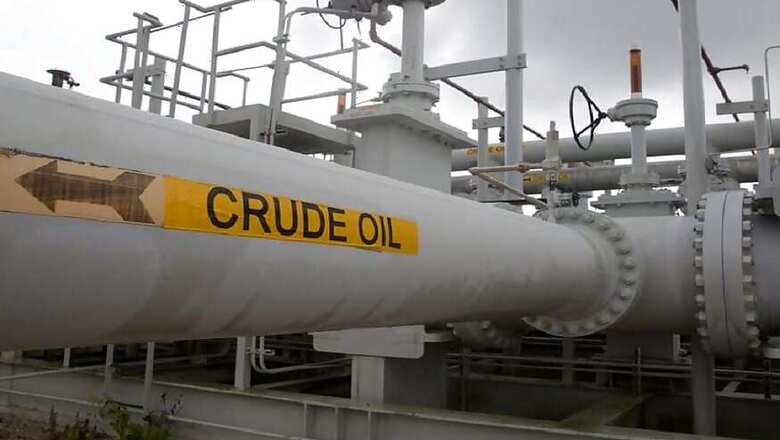
views
Singapore: Oil prices edged lower on Thursday as fresh tensions between the United States and China over ongoing protests in Hong Kong fuelled concern that a long hoped-for deal to end a trade war between the world's top two economies may be further delayed.
Trade experts have warned the first phase of a deal could slide into next year, while markets are wary negotiations might take a hit as the US. House of Representatives passed two bills to back protesters in Hong Kong, much to the disapproval of China.
Brent crude futures dipped 22 cents, or 0.35%, to $62.18 a barrel by 0611 GMT, while West Texas Intermediate (WTI) crude futures fell 20 cents, or 0.35%, to $56.81 per barrel. Both benchmarks had risen strongly on Wednesday on bullish U.S. crude inventory data.
"Overnight we saw a rebound of about 3% in crude futures after a reduction in U.S. inventories," said Hue Frame, portfolio manager at Frame Funds in Sydney. "The volatility today can be attributed to concerns surrounding the 'phase one' of the U.S.-China trade deal being delayed into 2020."
The trade war has hit global growth prospects and dominated the outlook for future oil demand, and US President Donald Trump has said he is inclined to raise tariffs on Chinese imports if a trade deal is not reached.
"Market participants ... hope that the slowdown in global growth will subside if a deal is struck," said portfolio manager Frame. "If (the deal is) delayed, they would more than likely sell off crude with the expectation that global demand for oil will decline during 2020 and beyond."
The subdued mood took over from optimism after US crude stocks rose by a less-than-expected 1.4 million barrels in the week to Nov. 15, data from the Energy Information Administration showed.
"It was a fall in stockpiles at the key pricing point of Cushing that drove prices higher (on Wednesday)," ANZ Research said. Crude stocks at the U.S. delivery hub of Cushing, Oklahoma fell by 2.3 million barrels.
Elsewhere, Russian President Vladimir Putin said on Wednesday that Russia and the Organization of the Petroleum Exporting Countries have "a common goal" of keeping the oil market balanced and predictable, and Moscow will continue cooperation under a global supply curbs deal.
The impact of that on the market was welcome but limited, sector watchers said.
"Russian commitment on an extended supply curb deal, though supportive of oil prices, will continue to struggle against headwinds on global trade issues," said Benjamin Lu, analyst at Singapore-based brokerage Phillip Futures.



















Comments
0 comment